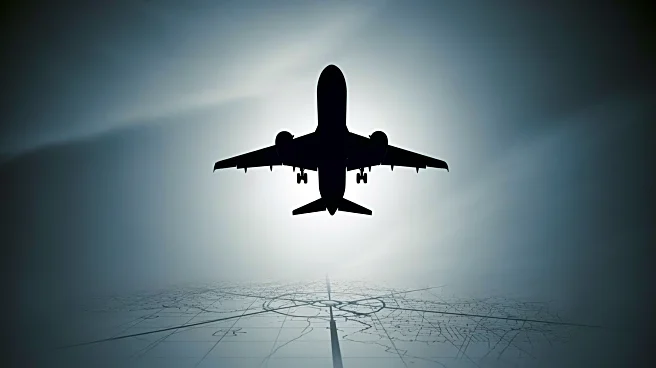What's Happening?
South African President Cyril Ramaphosa has announced an investigation into the arrival of a chartered plane carrying 153 Palestinians from Gaza into South Africa. The group arrived at OR Tambo International Airport but faced initial refusal of entry
due to missing departure stamps in their passports. Eventually, most were allowed entry after intervention from a local charity and government empathy. The circumstances surrounding their departure from Gaza and travel to South Africa remain unclear. The Palestinian embassy in South Africa stated that an unregistered organization exploited the humanitarian conditions in Gaza, deceiving families and facilitating their travel in an irregular manner. The Israeli military body Cogat confirmed the departure from Gaza after receiving approval from a third country, which remains unspecified.
Why It's Important?
This incident highlights the complexities and humanitarian challenges faced by Palestinians amid ongoing conflict in Gaza. South Africa's strong support for the Palestinian cause is underscored by its historical stance and recent actions, including filing a case against Israel with the International Court of Justice. The investigation could impact diplomatic relations and humanitarian policies, as South Africa navigates the legal and ethical dimensions of international asylum and refugee protocols. The situation also raises questions about the role of third-party countries in facilitating such movements and the responsibilities of international organizations in safeguarding vulnerable populations.
What's Next?
The South African government is expected to conduct a thorough evaluation of the incident, with updates promised by President Ramaphosa. Civil societies in South Africa are calling for investigations into the conditions the Palestinians fled in Gaza and the exact route of the aircraft. The outcome of these investigations could influence South Africa's immigration policies and its diplomatic stance on the Israeli-Palestinian conflict. Additionally, the incident may prompt discussions on international cooperation and the responsibilities of countries in handling refugee crises.
Beyond the Headlines
The incident sheds light on the broader geopolitical dynamics and humanitarian issues in the Middle East, particularly the plight of Palestinians in conflict zones. It also highlights the ethical considerations for countries receiving refugees and the need for transparent processes in international travel and asylum. The role of non-governmental organizations and their influence in such situations is also a critical aspect, as they navigate the balance between humanitarian aid and legal frameworks.















